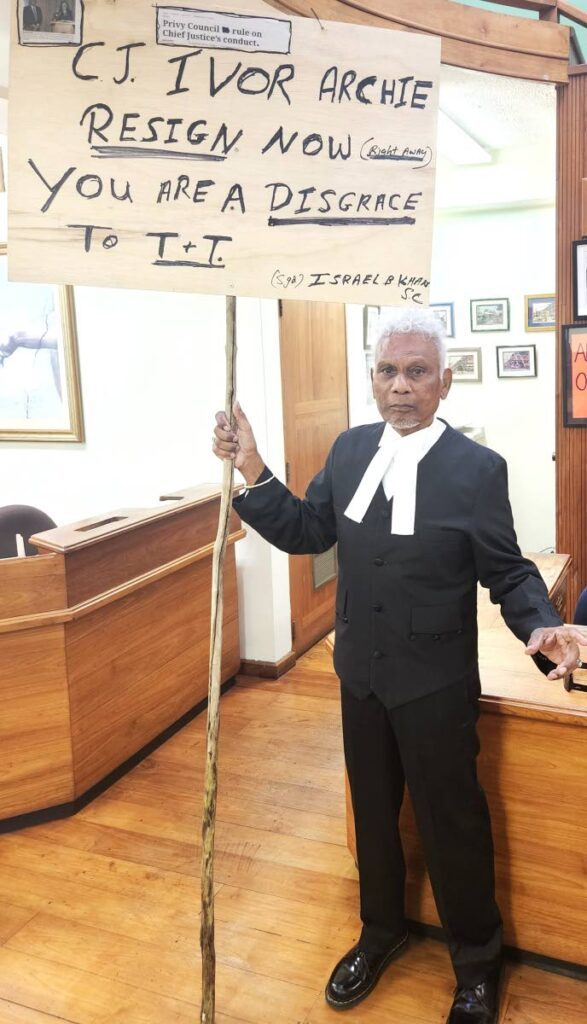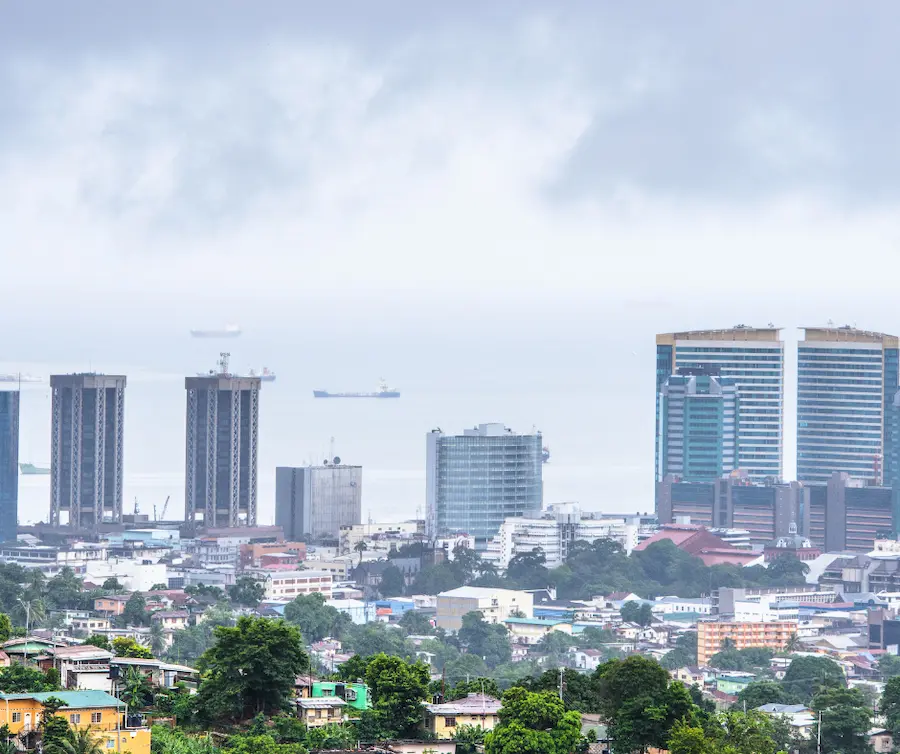

OUTSPOKEN head of the Criminal Bar Association Israel Khan, SC, has called on Chief Justice Ivor Archie to resign immediately or face impeachment over his handling of the controversy involving former chief magistrate Marcia Ayers-Caesar who was made to resign as a High Court judge.
Khan staged a one-man protest outside the Hall of Justice in Port of Spain on March 25, accusing Archie of bringing both the office of the Chief Justice and the office of the President into disrepute.
Khan said as head of the Criminal Bar Association, he demanded Archie’s resignation and urged Prime Minister Stuart Young to initiate a Section 137 investigation into Archie's conduct.
Khan reminded the public that he made similar calls in 2017 when he urged then-prime minister Dr Rowley to invoke section 137 to begin impeachment proceedings against Archie over misconduct allegations.
Rowley declined to act based on the advice of a British King’s Counsel who cited a lack of concrete evidence.
>
According to Khan, Archie’s actions warranted an immediate intervention.
He said ins that Archie’s actions warranted an immediate intervention, arguing that the judiciary’s very integrity was at stake.
His call follows similar demands made by the Assembly of Southern Lawyers (ASL) on Monday, hours after the Privy Council’s ruling in an appeal by the Judicial and Legal Service Commission (JLSC) against a Court of Appeal’s finding that the commission pressured Ayers-Caesar into resigning as a judge. The JLSC is led by CJ Archie.
On March 24, the Privy Council – this country's apex court – declared that Ayers-Caesar’s removal as a judge was unconstitutional after it upheld a decision by the Court of Appeal that the JLSC had acted beyond its authority in coercing Ayers-Caesar into resigning.
Ayers-Caesar briefly held office as a High Court judge from April 12-27, 2017.
Within days of her swearing-in, concerns surfaced regarding the number of cases she left unresolved in the magistrates’ court.
According to the evidence, Archie was unaware of the full extent of the backlog when he approved her elevation, and she reportedly assured him that her pending case-load was minimal, consisting primarily of “paper committals” that could be reassigned without significant delays. However, it soon emerged that she had left behind at least 52 partly heard cases.
On the day Archie met with Ayers-Caesar to discuss the situation – April 26, 2017 – there was a fracas involving prisoners accused of murder at the Port of Spain magistrates court where she presided.
They protested the adjournment of their cases and the likelihood that they would have to restart.
>
With the full extent of the backlog revealed, the JLSC convened an emergency session the next day to discuss the imbroglio.
At the emergency meeting, the JLSC concluded the situation was serious enough to trigger disciplinary proceedings and was reportedly concerned that her failure to disclose the full extent of her backlog had created a crisis that risked undermining public confidence in the judiciary.
Records of the meeting’s minutes said Archie was of the view that Ayers-Caesar’s position had become untenable.
However, instead of initiating a formal inquiry under section 137 of the Constitution, which governs the removal of judges, the JLSC gave Ayers-Caesar the option to resign or face possible removal proceedings.
She submitted her resignation later that day, but maintained she did so under pressure.
Attorney General Camille Robinson-Regis said on Monday it would be premature to comment on the Privy Council's ruling but added that the Office of the Attorney General would be reviewing the court's ruling.


